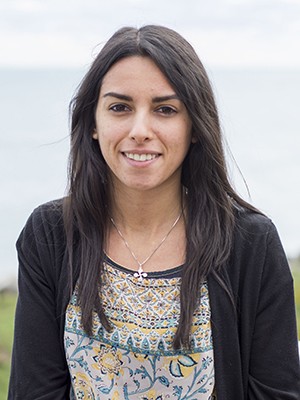Celebration of Scholars
A Language Curriculum for a Spanish Immersion Program in Guatemala
 Name:
Nerea Delgado Fernandez
Name:
Nerea Delgado Fernandez
Major: Education
Hometown: Burgos, Spain
Faculty Sponsor:
Other Sponsors:
Type of research: Master's thesis
Abstract
The purpose of this project was to develop a
curriculum for the 2016 Guatemala J-Term study tour offered by Carthage College. This program consisted of an almost one-month experience in which students were
immersed in the culture and language of Nuevo Horizonte, a rural Guatemalan
community. The curriculum included seven activities intended to
enhance the students’ oral proficiency in Spanish. Other skills such as reading,
writing and listening were also included so as to help students to improve
their overall language competency. Seventeen intermediate-advanced Spanish students
participated and completed the intended curriculum, which was conducted
entirely in Spanish. Students’ language gains were measured through pre- and
post-stay interviews. The data showed that virtually all students improved to
some extent, fluency being the variable that presented the greatest gains. Other
areas such as grammatical accuracy and vocabulary acquisition presented
substantial gains as well. In addition,
questionnaires and journals were utilized to track both the students’ use of
Spanish and their language development. These accounts provided important
information in terms of the linguistic challenges that students at more
advanced levels experience as they work towards attaining a proficient command
of Spanish. In short, the present project provides a reference model for future
short-term study abroad programs, and suggests clear linguistic benefits that
may be relevant for future students and instructors alike.
Submit date: March 13, 2016, 11:04 p.m.
